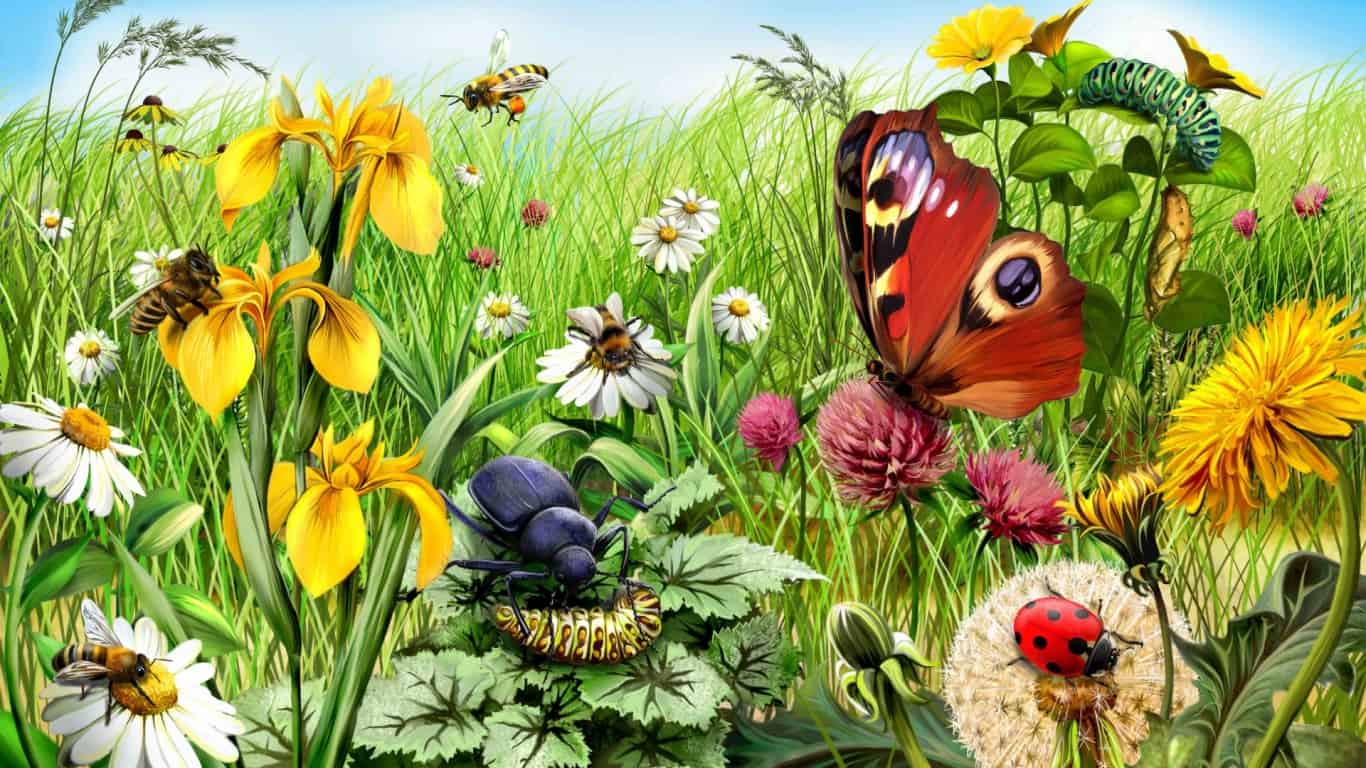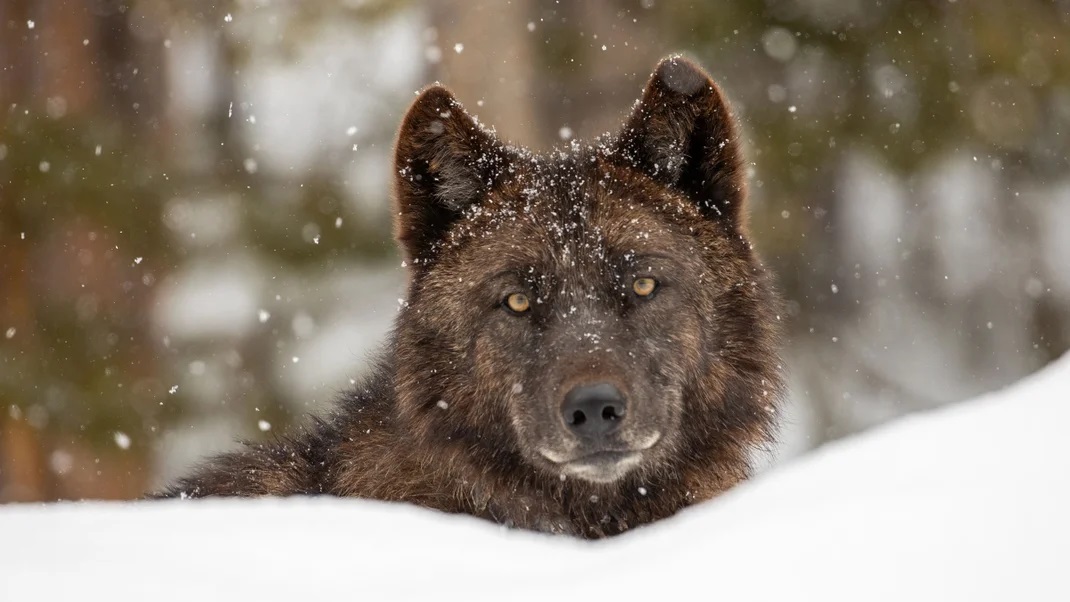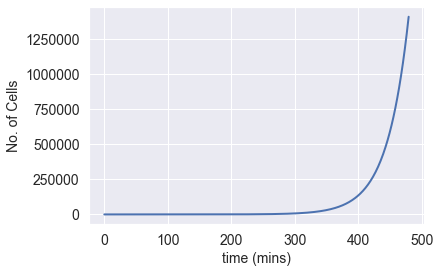|
home | what's new | other sites | contact | about |
|||||
|
Word Gems exploring self-realization, sacred personhood, and full humanity
Kairissi & Elenchus discuss
return to "Evolution" main-page
Editor’s note: This article is meant to follow a writing which offers research evidence for animal and plant cooperation.
E. The author has asked us to comment on a writing featuring a major concept: cooperation as primary unifying element of the animal and plant worlds. K. And, with a concomitant dismantling of the Darwinian paradigm; that, nature is not at war against itself, a raw and brutal struggle for survival; but, instead, reflects a Mind of a higher order. E. Tell me, quickly, without thinking about it – how did all this strike you? K. First impressions? I was a little taken aback. I mean, the topic of competition in the animal world right away brings an image to mind of the lion mauling the zebra. E. Or wolves attacking sheep or moose. K. Yes… we could make a long list. E. But let’s stop ourselves right here. These horrific images of being eaten alive freeze our brains with terror. And that’s part of the problem of discussing this subject in any objective sense. K. I have to admit, when I first heard the title of the article, how nature is not at war with itself, how nature is an alliance of cooperation – I was more than a little skeptical. But, as I read the material, I was sort of shocked at all the evidence. There’s much more in play here than we’ve known. E. It’s like hearing one side of the story and that’s all you know. And so you think it’s an open-and-shut case with no need to even talk about it. But – this whole area has been misrepresented. K. There's so much to discuss here, so much information to digest; but, as we make our way through even an introduction to the material, a whole new world comes into view. E. It’s not the way we thought it was. K. I think I’d like to chip away at this huge body of information by saying something about the lion and the zebra. E. I would too, but you go first. K. Cooperatively yours, I’m sure. Now here’s the deal with the lion and zebra. When we see what appears to be a life-and-death struggle, and the blood and gore, we immediately think of pain and suffering, even, how it's not fair, and maybe that the poor zebra won’t be going home that night to see his wife and kids. E. He'll be late getting home from work again. I mean, how many times does he think he can get away with using that excuse? K. Uh-huh. In other words, we anthropomorphize the whole situation. This is how we would feel to be brutalized that way, and so we imagine the zebra feeling the same. But it’s not that way. E. There are many reasons why what you just said is true. And since this issue is important to many people to understand correctly, why don’t we number the parts of the argument? K. Ok… first, we’ve learned that in kill-situations like this, the zebra will go into shock almost immediately. Pretty much, he doesn’t feel a thing; moreover, we’ve learned that prey-animals, once they determine themselves to be caught, often just surrender and collapse. There’s no struggle, they don’t fight, they go peacefully. E. You know what this makes me think of? It's something the Spirit Guides have often talked about. They say that, for example, if a car crash is about to happen, the human spirit, the soul, leaves the body before impact, and so the person feels no pain. The Guides have also commented on more dramatic examples. In times past, when people were burned at the stake by the Church as heretics, again, they’ve said, the victim’s spirit leaves the body before the atrocity really gets under way; again, the person feels no pain. K. This is a very important point. It means that, all the way up “the food chain,” no matter where you are on the continuum, Nature or God or the Universe has made us with, or built into us, certain “fail safe” mechanisms to limit or even avoid great pain and suffering. E. Thank you, Kriss. I’m very glad you mentioned that. And now give us the next point. K. Ok, second, we need to get rid of the anthropomorphism. The zebra is not thinking like you and me. Tolle had a great little piece on this, and let’s reproduce it here. It's a story about a new-born fish named John.
E. Tolle is right. We do tend to make “separate individuals” out of animals that we know. And while they’re not unfeeling robots or machines, and do possess a degree of awareness, they have no true powers of rationalization or conceptualization. The author discussed this in the “animal language” article. K. Animals do not have egos, there’s no well defined sense of self with the “chattering in the head.” Those of our species can lie in a warm comfortable bed at night, but make ourselves miserable by “playing sad movies” in our brains where all of our fears come alive in technicolor. But the animals don’t do this; they always live in the "present moment" and not in the past or the future. The zebra has not lived his life worrying that this might be the day when his number is up and a lion will get him. He doesn't lose sleep over this - but we would. E. Animals don’t function that way. For the most part, they conduct their lives according to ingrained instinctual response and motivation. They don't fret over things. It’s as Carl Jung said, "Animals fulfill God's will most faithfully: they live to fulfill their Creator's purpose. We do not do this. We meddle with the work of the Creator. But the animals are themselves, and they fulfill the will of God that is within them in a true and faithful manner." K. I love that quote from Jung. And, third – and this follows very closely from what we’ve just said – the lion doesn’t hate the zebra. With human interactions, if someone is out to get you, they pretty much do hate you, and they might not even have a good reason. But the lion is not up at all hours at night trying to come up with schemes on how to put those uppity zebras in their place once and for all. It’s not like that. E. Only immature and perverted humans think that way. But the animals live and act according to internal guidance systems which are not laced with the negative energy of anger, bitterness, revenge, or envy. K. We should mention too, fourth, the prey-predator dynamic is one factor that keeps animal populations in equilibrium. A great many of the animals play both roles, predator and prey, and so it’s not a one-sided operation. In so doing, fifth, food sources are provided up and down the chain of life. As Augros and Stanciu point out, the wolves do not terrorize and oppress the caribou, as such, but depend on the caribou for their very existence.
E. All of these factors are meant to exist in nature as finely-tuned ecological calibrations designed to maintain the animal world in peak performance. All creatures depend on other creatures for their successful maintenance, and without this cooperative interplay, planet Earth could not support and present to us such multitudinous variation of species. K. Ellus, concerning your phrase, “finely-tuned ecological calibrations,” I was rather astounded to learn of so many of these, each playing a part in a grand harmonious symphony of life. We are not accustomed to looking at nature in this way. However, as the research data comes in, we see Mother Nature employing strategy after strategy to limit or even eliminate competition in the fauna and flora worlds. It’s incredible, really. E. It really is. All of these “finely-tuned ecological calibrations” speak to a subsuming organizational Mind. This interlaced lattice-work of cooperative effort, in its byzantine complexity, could not have happened by accident. The probability-math will not support randomness as originating author. [Editor's note: see the three articles on "not enough time."] K. As I come to awareness of how nature really works, part of me, as I said, is held in thrall by the beauty of the cooperative complexity; however, I’m also moved by a measure of dismay. All of this cooperation information is known. It's not in question. There’s a whole cadre of biologists who live by these more enlightened principles. E. The ones in the field doing the actual research know very well that cooperation is the glue that holds it all together. K. And those who go into the field with the express purpose of finding evidence for competition are left empty-handed. They can’t find it! - even when they’re trying very hard to do so. E. And so, we have the two faces of biology: (1) the Darwin lobby controls the production of biology text books for high school and entry-level courses in college, and there, the same old tired, worn-out, and discredited Darwinian ideas are still taught as “gospel”; but, as we've learned, (2) in higher-level college bio-courses, or in actual field-study protocol, no one bothers with the “old party line” anymore; now, a new biology is taught and discussed, as what really works. K. This is all very disturbing. We’re dealing with a propaganda machine. The author has addressed this issue at length in the “Clear Thinking” and “George Orwell” articles. E. It’s hard for the average person to believe that all this disingenuity is really happening. This should be objective science, not gamesmanship. But Darwinism cannot successfully defend its “territory” based on the merits of reasoned argumentation and empirical evidence. And so, strange as it seems, the hard-line Darwinists who control the monopoly, employ time-tested propaganda techniques to remain in business; essentially, they just keep “pounding table” and, in Orwellian fashion, repeating the lie, hoping that the world will take them seriously.
postscript: since bacteria multiply at an incredible rate, why don't they cover and eat up the Earth
Kairissi. We talked about natural population controls, but I’d like to say a word more about this. It’s far more important than we might initially understand. Elenchus. You have the microphone, Kriss. K. It’s something that’s built into the basic design and fabric of how things work on planet Earth. If this principle or protocol weren’t in place, our planet would very quickly become uninhabitable for any life-form. E. Now you have our attention. K. Here’s a simple example, something that’s addressed in almost every microbiology class. The question might asked, given the prodigious rate at which bacteria multiply, why don’t these single-celled organisms cover the Earth? In fact, not just cover but, why aren’t we a mile deep in bacteria, and why haven’t these creepy crawlers totally consumed the Earth? Here’s a discussion from an online science class: 36 hours to cover the Earth
K. The answer is, there are natural limits in place to keep bacteria on a short leash. They cannot multiply indefinitely because, very quickly, the burgeoning numbers would cross over the line into “diminishing returns.” In a hurry, we'd see food supplies become strained and run out. Too many bacteria-bodies would create their own toxicity. To put it plainly, very soon they would begin to kill themselves with the over-population. E. And that’s why we’re not mile-deep in them. K. Now, we could play the anthropomorphism game with them, too. E. Here we have the couple, Mr. and Mrs. John and Mary E.Coli. K. And aren’t they a lovely couple? – just minding their own business, you know, enjoying life on their own terms. And so why shouldn’t they have rights to extended activities and existence? And isn’t it so very cruel that so many of them have to die young the way they do? E. It is tragic, for sure. But then, if they didn’t, none of us, including any of them, could live on this planet. K. Oh, that little detail. E. And a scenario such as this could be painted for any species on the Earth. K. Without natural population controls, the entire interconnected latticework of life on this world would soon shatter and fragment into chaos and destruction. Too much growth is a deadly thing because resources are always limited. E. With this in mind, could you add a final thought for our friends the lion and the zebra? K. They don’t hate each other, and they’re neither proud nor filled with anticipatory dread. Nobody's being ruthless, and they're not competing. They perform their roles in nature, and before God, dispassionately, virtually, in a disinterested manner. In so doing, they offer a service to the entire eco-system, that is, to every other life-form, on planet Earth. E. And here’s the capstone item of knowledge on this topic: Every life form has a spirit, just as humans, and this spirit -- for every creature – will go to Summerland. We learn of this from Spirit Guides. This means that every lion and zebra, and every other animal, will have lost nothing for their trouble here on Animal Planet. K. We've often said, God has no favorite kids. But this statement does not do justice to the kind-heartedness of Universal Consciousness. The larger truth is, when it comes to cosmic fairness and living eternally, God has no favorite life forms.
Editor's note: It should also be pointed out that organisms themselves are virtually programmed to remove themselves from the stage of life, if it serves a larger purpose of species survival: Read, Perry Marshall: “In plants and animals," for the greater good of the organism at large, "cells obediently die in response to instructions from other cells.”
|
|||||
|
|



